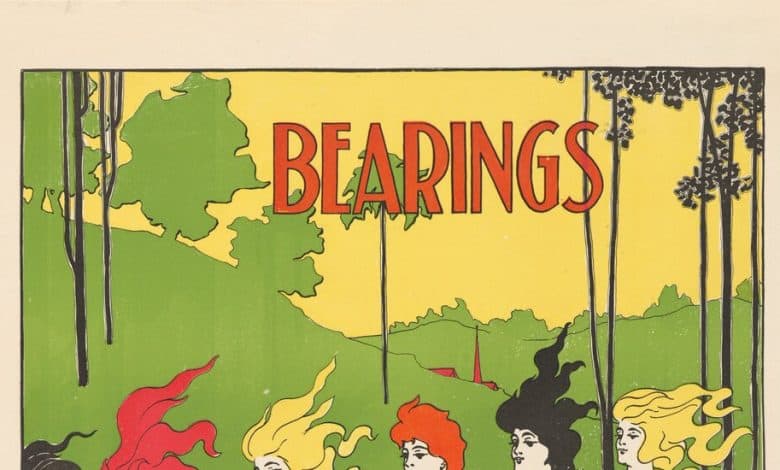Literary Gold From the Gilded Age, in Poster Form

Trends come and go; one era’s tulip fever is another’s Beanie Baby craze. The vogue for literary posters burned briefly, beginning in 1893 and lasting not much more than a decade. But the body of work it produced often hewed closer to fine art than advertisement, and slyly captured the zeitgeist of the times: a bellwether for the modern man or woman whose fondness for the intellectual enrichment of periodicals like Collier’s and Harper’s Magazine was matched only by an aggressive commitment to physical health and attractiveness. (See Charles Arthur Cox’s rendering of five lithe beauties on a tandem bicycle, leisurely perusing the latest copy of Bearings. Gibson Girls who read!)
Images like these, as Allison Rudnick writes in her introduction to “The Art of the Literary Poster” (Yale University Press, $50), “epitomized the vanguard in graphic design.” (Rudnick is an associate curator at the Metropolitan Museum of Art, where an exhibit featuring dozens of these artifacts runs through June 11). They also provided a rare platform for gifted female illustrators of the era like Florence Lundborg and Ethel Reed — even if those efforts were often damned with faint, feminizing praise in contrast to the output of their male counterparts.
Success in the field could indeed be arbitrary; an entry by a young Maxfield Parrish in a contest sponsored by a now-defunct monthly called The Century allegedly earned him only second prize because his submission required four colors rather than three to produce. Even in monochrome, though, these works would still dazzle: artifacts of a vanished world in which ads were objects of beauty, and reading — even on two wheels — was indelibly, indubitably chic.